How Japan balances technology and humanity in the 21st Century
Or, recollections from a pro-human holiday in Osaka & Kyoto
We had a family bereavement this week so forgive me for sharing this post that I wrote back in December after a trip to Japan but didn’t publish. Normal service will resume next week. Best, Nx
I used to go to Tokyo on business but I was always confined to hotel rooms, conference rooms and karaoke rooms - I never really got to understand the culture outside of how to do business there, or the country outside of those few, seedy central districts of Shibuya and Shinjuku, until now…
In December last year (2023), I went with my family on holiday to Japan for the first time. We visited Tokyo, for starters, but then travelled up to Sapporo, home of the crispest beer I have ever tasted, then Otaku and eventually on to Niseko, a ski resort on the island of Hokkaido. I fell in love with the place. The hearty, salty food and crisp beer of course but also the music of local bands that I picked up in record stores and, most impactfully of all, the balance they seem to maintain between old and new, analogue and digital, humanity and technology.
My family and I were so taken with the country that we returned during the same period this year (2024), but visited Osaka and Japan's former capital Kyoto instead. This was my wife's suggestion and I didn't need much selling on it but, nonetheless, she presented me with this rather fabulous map of Osaka's 27 centrally located record stores and I was all aboard!
As you may or may not know, Japanese vinyl is renowned for the quality of its pressings, the uniqueness of its presentation (Japan often produces exclusive local editions of albums), and the great care with which it is treated by Japanese owners, making the second-hand market a treasure trove of beautiful, unusual records. But vinyl isn't a fad in Japan that has suddenly arisen to save the music industry from its sins. Vinyl, and indeed CDs, have always remained popular there, as have other analogue forms of culture.
For instance, stationery is so popular in Japan customers can support an eight story stationery store in central Tokyo that sits alongside designer outlets by the like of Chanel, Gucci and Issey Miyaki! My wife and daughter are crafters, they love to make things with paint and pens and card and stamps so we made our pilgrimage to the iconic Itoya store last year.
Inside I stocked up on Pilot Lightive Fountain Pens, Iroshizuku Ink, Midori Letter Paper and refills for my Traveler’s Company Notebooks. I was so taken with the products that I vowed to improve my handwriting and write regular correspondence to family and friends on silky paper folded into origami envelopes (another broken resolution to be revived this year). The Japanese, it seems, still believe in the value of handwritten correspondence via greetings cards, thank you notes and letters.
But wait, isn't Japan living in 2050?
Growing up in the 1980s my generation believed that Japan was already living in the future because our houses were filled with Aiwa Stereos, JVC VCRs and Sony Trinitron TVs attached to Sega and Nintendo consoles. They do of course travel on bullet trains and relieve themselves into robotic toilets but, as I discovered on my solo trip to Kyoto International Manga Museum, they still prefer comic books written by hand and cartoons animated with hand-painted cells. There is a deep and abiding respect for quality and craftsmanship in Japan not as an alternative to tech but a compliment to it. They believe that some things are simply worth doing by hand, that they deserve the human touch, and I am inclined to agree.
The human touch also extends to second hand goods. Everywhere you look there are vintage clothing stores, vintage book stores and antique emporiums in addition to used vinyl stores. The fact that something has had a life before imbues it with history and authenticity, more so than a modern recreation for instance. It also means that fashions are much more eclectic there.
Whenever I go back to London to visit family and friends I can instantly tell what is in fashion because everyone dresses the same. A couple of winters ago it was leather biker jackets, last summer it was painful looking lip fillers and low-cut Skims tops. But in Japan it's tough to work out what's in vogue because fashionable folks dress in a mix of old and new, remixing different eras into outfits that are both novel and familiar at the same time. The degree of self-expression through clothing and accessories was so refreshing to see coming from staid Singapore, although it must be said we only have one season here - hot and humid - which does severely limit the choice of clothing and completely puts paid to layering (which is a shame because I am definitely an 'autumn'!).
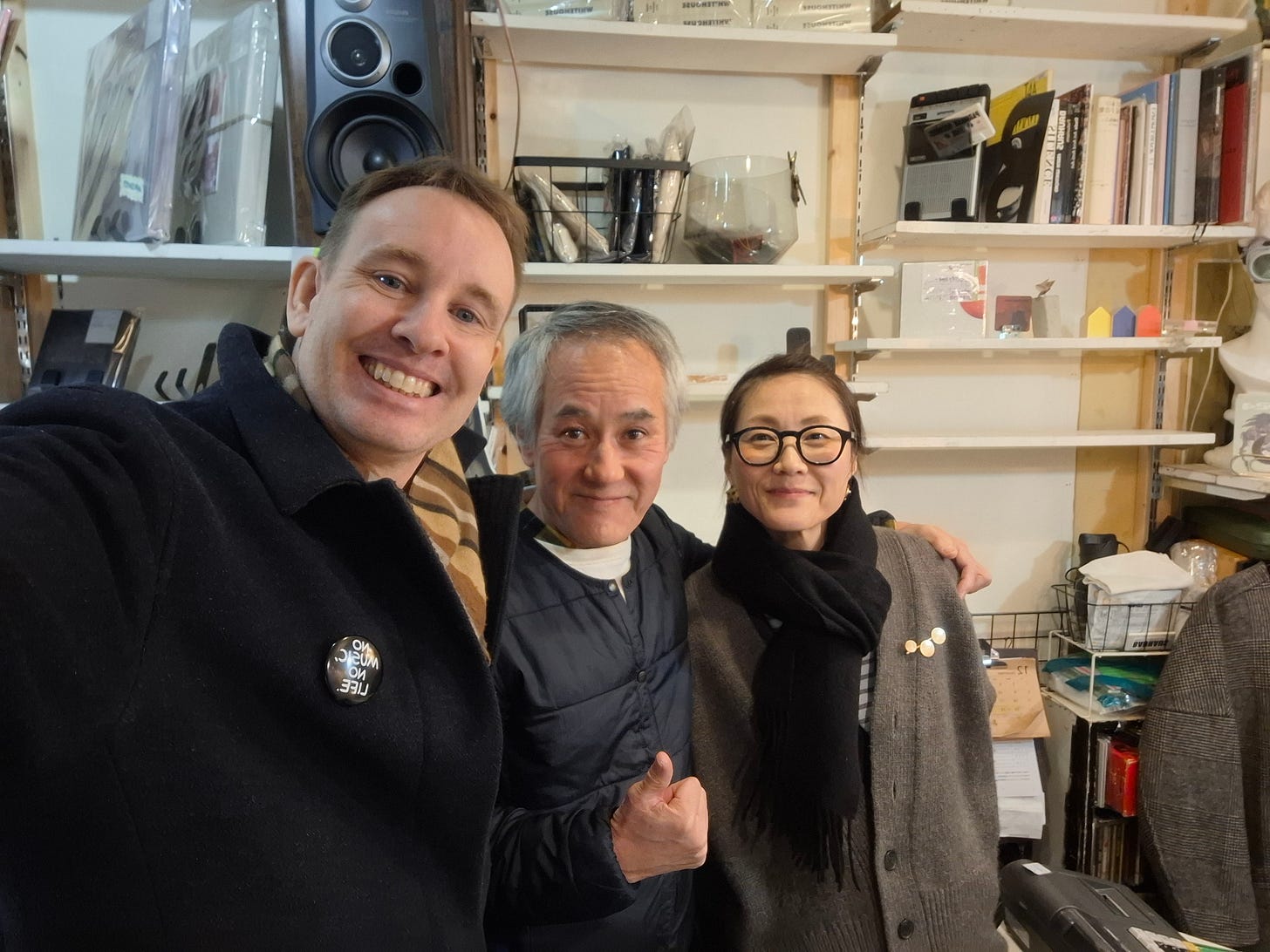
Of course we didn’t just shop on holiday, we ate local food in the tiny backstreet restaurants with room for only half-a-dozen customers who eat side-by-side, sometimes striking up conversation, sometimes alone. I am positive any of these eateries could scale up and export their brand to places like Singapore that exult Japanese food and culture…but they generally don’t. They are often proudly family run for generations, their history written on the backs of menus, and exist in ‘yokochos’ which are the backstreets that serve as a third place between home and office. There’s is almost no room between diners but, again, it is profoundly humane to sit in such close proximity and break bread with strangers.
As global corporations that, despite their espoused values actually despise diversity, attempt to export their brands, values and tastes to every country on Earth crushing local cultures along the way, Japan stands apart as a place deeply invested in its own culture and unwilling to compromise, which makes it a genuinely unique experience for travelers.
To Do List
My recommendations for new things to read, watch, look at, listen to and do:
As if to prove I am genuinely not anti-tech, just pro-human allow me to share a post from the other side, which has some positive news for humanities graduates - turns out the world does need you after all according to Substacker (and Editorial Director of Google Labs - boo!),
:Now back to business as usual with this (very) short piece of deathly dark dystopian fiction. Brilliant, affecting stuff from Substacker
And finally there’s all of these awful things that you should be aware of but I wouldn’t blame you if you chose to ignore:
That’ll do ya! Cheers, Nx


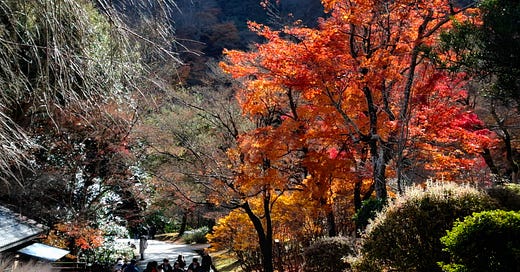




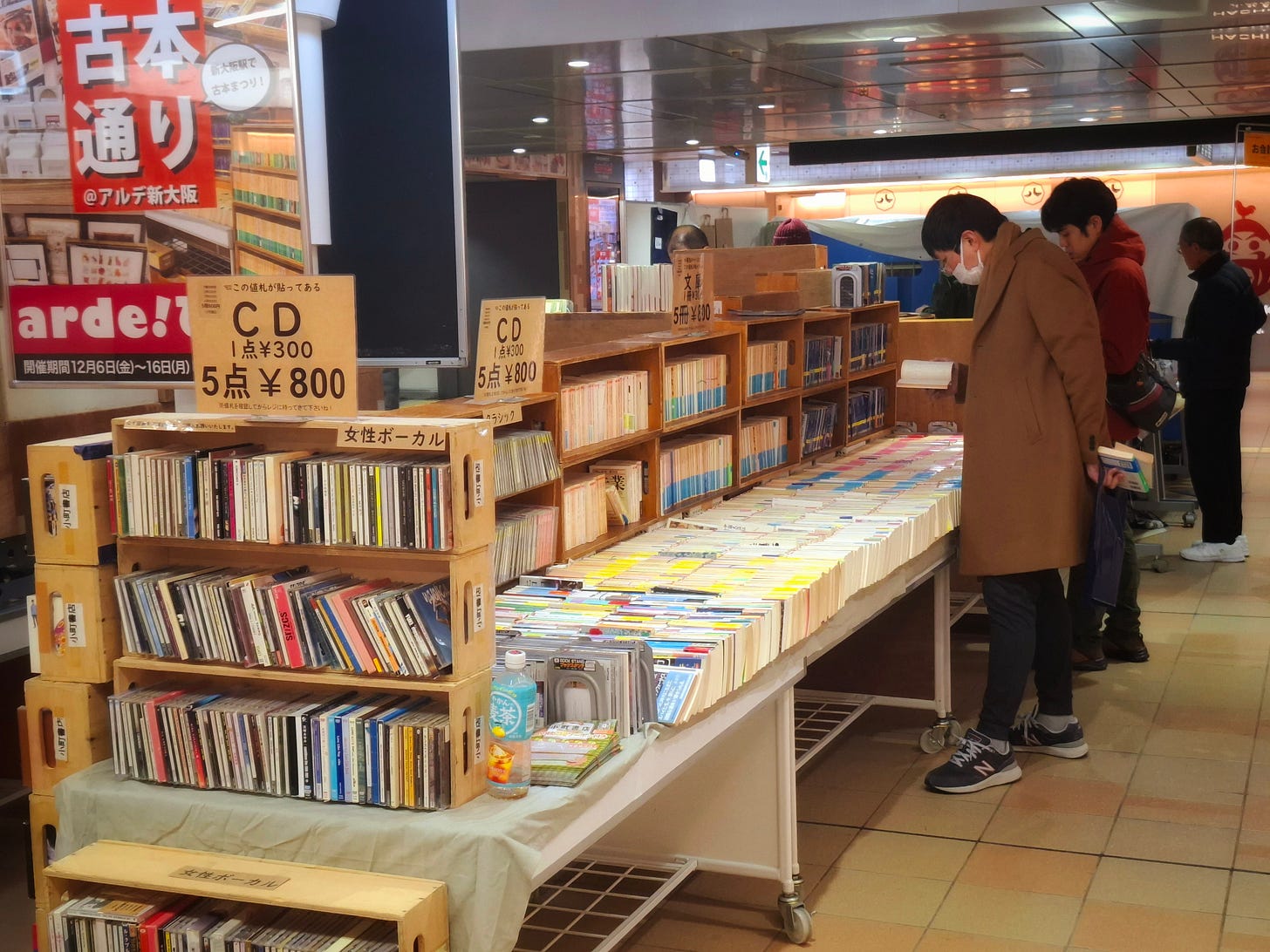
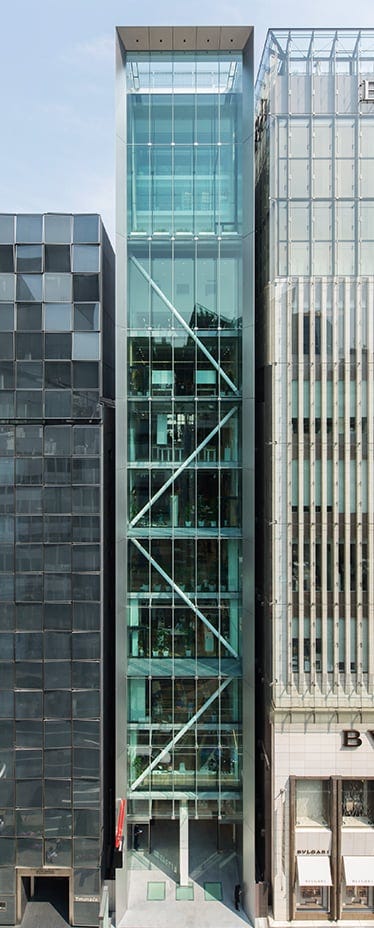
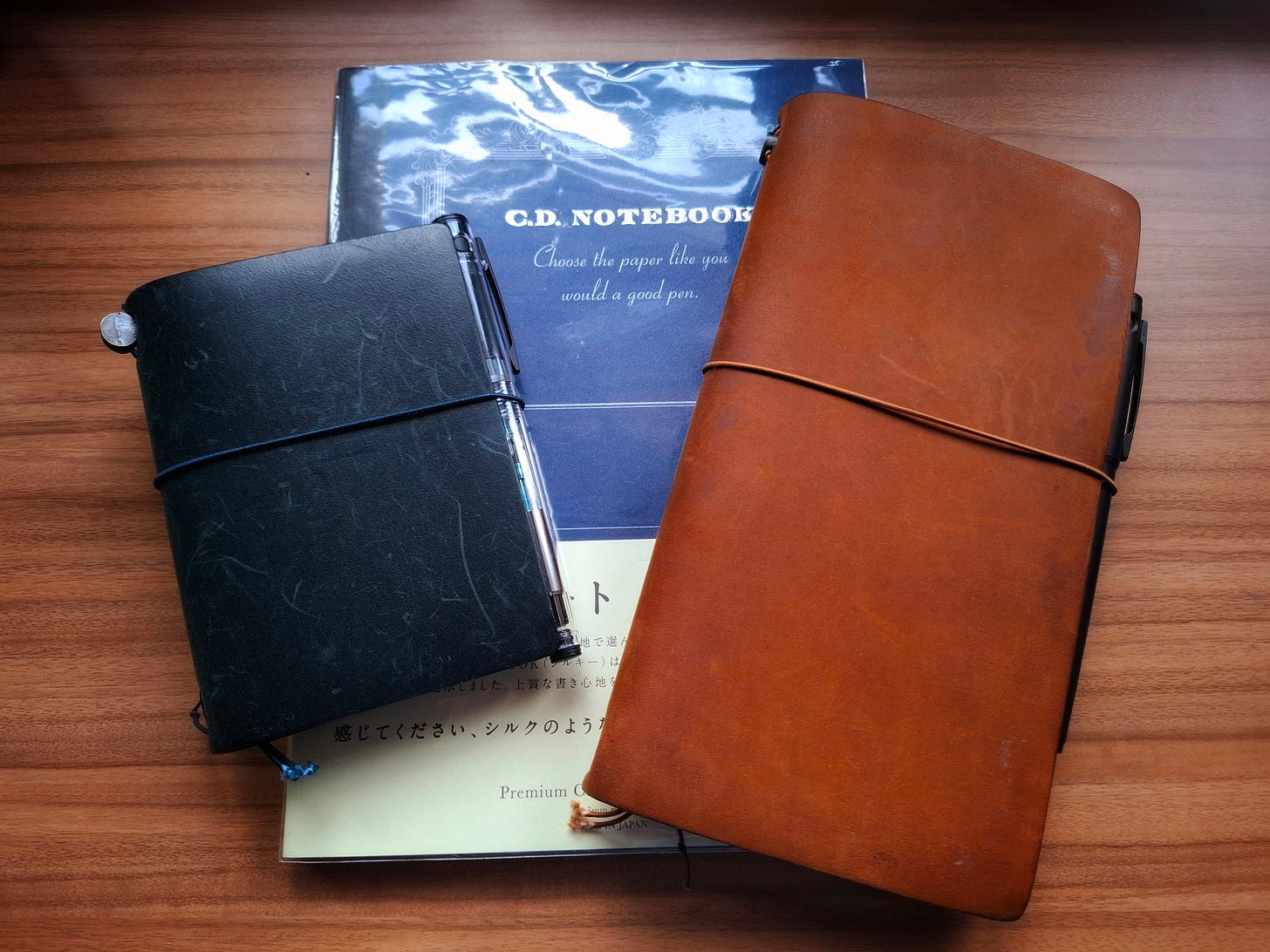


Wonderful piece, thank you. And I enjoyed the AI short story you linked to.